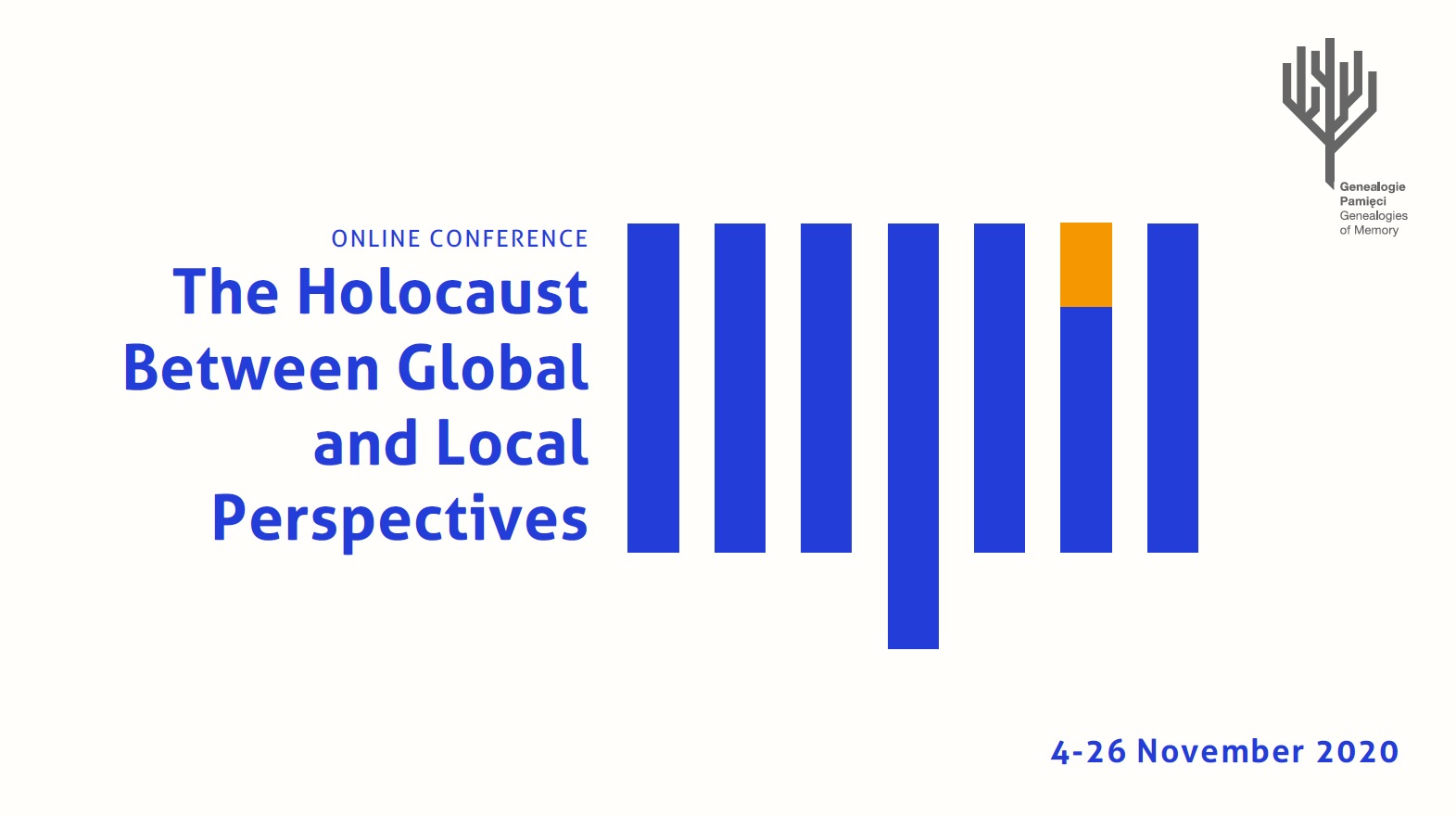This year’s edition of the Genealogies of Memory conference will be held online in the form of eight sessions between 4–26 November, under the topic “The Holocaust between Global and Local Perspectives”.
The conference will be organised as a series of online sessions broadcast on YouTube and Facebook, with the following schedule
4 November 2020, 15:00–18:50 hrs. CET (Wednesday) Practical Ethics of Holocaust Memory in the 21st Century
5 November 2020, 15:00–18:30 hrs. CET (Thursday) The Ringelblum Archive as the Earliest Historiography of the Holocaust and its Impact on International Research (The Jewish Historical Institute)
10 November 2020, 15:00–18:30 hrs. CET (Tuesday) Borderland Memories in Europe. Renegotiating Holocaust Remembrance
12 November 2020, 15:00–18:30 hrs. CET (Thursday) Overlooking the Local Dimensions of the Holocaust. Language and the Cultural/Spatial Politics of Transmission (Jagiellonian University)
18 November 2020, 15:00–18:30 hrs. CET (Wednesday) Forensic Environments of the Holocaust and its Memory
19 November 2020, 15:00–18:30 hrs. CET (Thursday) Translation and Travel of Holocaust Memory between Europe and Israel
25 November 2020, 15:00–18:30 hrs. CET (Wednesday) Holocaust Memory: Diagnosing the Global Effect
26 November 2020, 15:00–17:00 hrs. CET (Thursday) Holocaust Memory and Research in the 21st Century: Between the Global and the Local. A roundtable discussion
Please note that all times are indicated according to Warsaw time, i.e. Central European Time (UTC+1:00).
The aim of the conference is to assess the current state of Holocaust memory research. The context for this is, on the one hand, the globalisation and universalisation of the meaning of the Holocaust and, on the other, the more recently postulated empirical turn in Holocaust (memory) studies, towards primary texts and sources as well as local spaces and materialities (e.g. forensic studies, environmental Holocaust studies), or the use of a grounded research perspective with regard to Holocaust memory and education.
We want to discuss the interplay between the universal (global, transnational) scale of Holocaust memory and that anchored in the endemic space and culture of historical experience (local, ethnic, national). We are interested in the influences between the diverse mnemonic scales, including both mutual inspiration and conceptual misuses: thus the question of the ontological and ethical limits of mnemonic universalisation, on the one hand, and of micro contextualisation of memories on the other.
The conference language is English.
Click here to learn about this year edition
